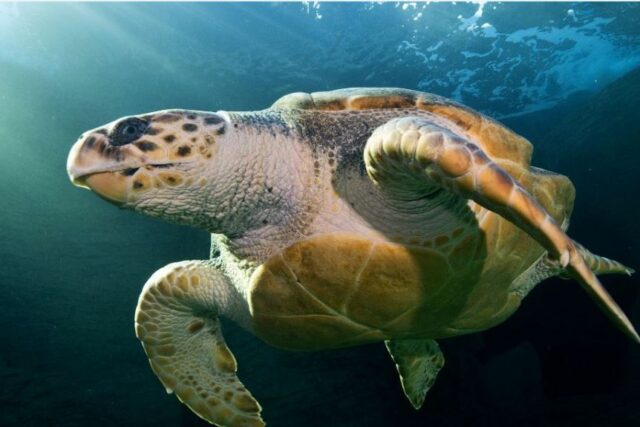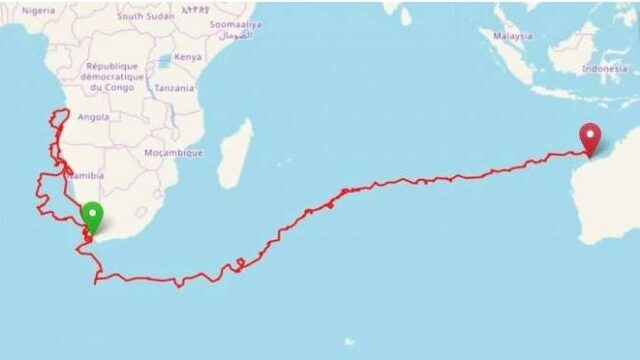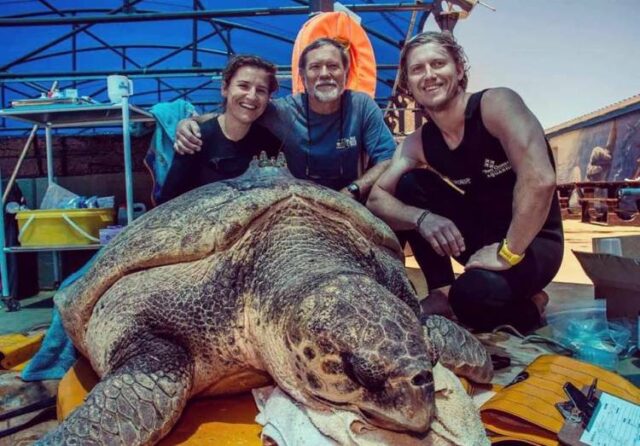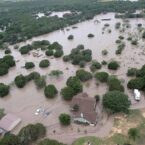A group of scientists decided to track a large turtle’s journey in the ocean after spending 20 years in captivity and being set free, and their findings are truly amazing.
Yoshi is a loggerhead turtle that weighs 180 kilograms and the group of scientists believes that she is originally from Australia.
Her journey of 37,000 kilometers across the Indian Ocean to Western Australia’s Pilbara coastline was carefully observed and monitored by scientists.
They first began following her two years ago in Cape Town and they think that the reason for her journey is to help her return to her original hatching site.
According to Sabrina Fossette, who is a researcher at WA’s Department of Biodiversity, what is truly amazing is that even after 20 years of captivity Yoshi knew exactly where to head after being set free in the ocean.
She first arrived at Cape Town’s Two Ocean Aquarium after being rescued by Japanese fishermen who found her with a damaged shell.
The aquarium has a rich history in caring for injured turtles, as they saved and released more than 600 so far in the last 12 years.
They also got very attached to Yoshi, so that’s why they are still keeping an eye on her and tracking her journey around the world to learn more about her final destination.
Aquarium chief executive, Maryke Musson said that Yoshi’s journey had been followed, and celebrated, around the world.
She said it was believed to be the first recorded movement of a sea turtle between Africa and Australia.
Yoshi also navigated, and survived, hazards such as plastic pollution, fishing gear and vessels, swimming around 50km a day.
“It’s a very impressive distance for a turtle her size,” Ms Musson said.
“When we released her she was 180kg, which is on the bigger side for an adult loggerhead.
“I think it’s helped her a lot, it’s kept her safe and she’s strong.
“We are incredibly proud of what she’s done and what she’s achieved thus far.”
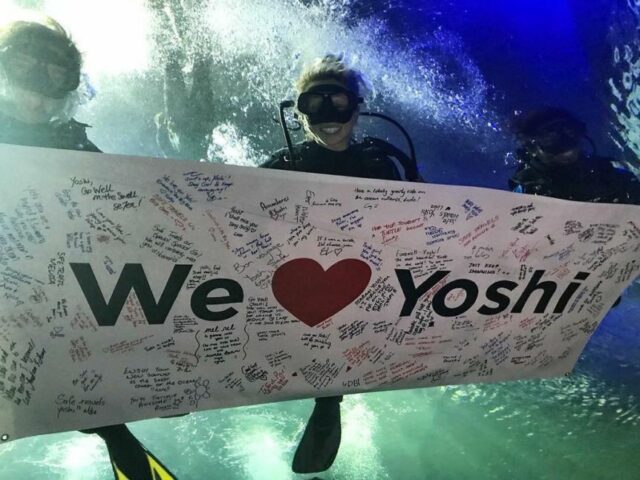 Yoshi the turtle has gained widespread attention, and support, from ocean-lovers around the world.(Supplied: Two Oceans Aquarium)
Yoshi the turtle has gained widespread attention, and support, from ocean-lovers around the world.(Supplied: Two Oceans Aquarium)

